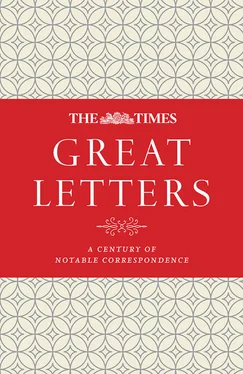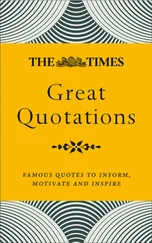I had hardly spoken the words when there rose a dull murmur, and one caught snatches of “Give us bread, we are hungry.” The tramway car was not travelling fast owing to the crowds. A university student jumped on to the footboard, said something to the driver, and then turned to the control lever, and the car came to a standstill. This held up all the rest, so my friend and I got off and walked. I took her to her destination, and begged her friends to keep her for the night, and then returned to Nevsky.
There I found everything changed. The placid dullness of these sullen crowds was replaced by alertness and excitement. As I neared the statue of Alexander III, a workman ascended to the plinth, and began to address the people. A policeman approached and remonstrated. The speaker refused either to get down or stop talking, whereupon the policeman drew his revolver, and shot him. It was the match to the fire; the smouldering fuse had reached the powder, and it went off. The Revolution had begun. In 20 minutes there was hardly a vestige of that unfortunate policeman left. Men, women, and even children fell upon him and literally tore him to pieces. One could hardly
believe that those sad, silent people of half an hour before could have
been suddenly transformed into such savages, lusting for the blood of the wretched man.
After this the crowd moved down Nevsky in one solid mass, were met by police, and were fired on. Every one knows the rest: innocent and guilty alike were shot down until the troops joined the people, and the so-called “bloodless Revolution” began.
I am, etc.,
B. S. LOMBARD
* * * * * * *
A Swindle by Telephone
16 January 1926
Sir, I wish to warn your readers about a swindle, which has trapped even astute men of business. The modus operandi is a telephone call from a person claiming to be a friend or to have a business or personal connection with the victim. The gentleman is in distress, having been robbed of his purse.
Would his friend help him with a telegraph remittance in the nearest post office to enable him to return to his home in the counties? This in itself sounds bald and unconvincing, but is elaborated with sufficient circumstantial detail to make the story appear genuine. The device comes from America, where it appears to be very successfully played, and is a very profitable transaction for the swindler, who will continue to make a handsome revenue if the public is not warned.
The most effective answer is to promise the required help and then, immediately, to communicate with the police, who, if the case is genuine, can render the assistance needed, or, if not, can put a stop to these activities. No doubt the trick will appear in varying disguises, so as to keep it fresh, but the net result will be the same.
Yours truly,
VIGILANS
* * * * * * *
Il Duce Writes
26 June 1925
Sir, I am very sensible of the fact that your most important paper attentively follows my political and polemical manifestations. Allow me, however, to rectify some statements contained in your last editorial.
It does not correspond with facts that the last Bills voted by the Italian Chamber are against the most elementary liberties, whereof you will be convinced by carefully considering the article of the aforesaid laws. It is not true that patriots are discontented. On the contrary, the truth is that the opposition is carried on by a small dispossessed group, while the enormous majority of the Italian people works and lives quietly, as foreigners sojourning in my country may daily ascertain. Please note also that Fascism counts 3,000,000 adherents, whereof 2,000,000 are Syndicalist workmen and peasants, these representing the politically organized majority of the nation. Even the Italian Opposition now recognizes the great historical importance of the Fascist experiment, which has to be firmly continued in order not to fail in its task of morally and materially elevating the Italian people, and also in the interest of European civilization. Please accept my thanks and regards.
I am, &c.,
MUSSOLINI
The Times had criticised Il Duce’s repression of the press and political opposition. Himself a former journalist, Benito Mussolini was keenly aware of the influence of the media on public opinion, at home and abroad.
* * * * * * *
Making Proper Porridge
17 August 1925
Sir, The recipe given last Saturday for porridge is not very helpful, nothing being said as to the quantity of water or of oatmeal a person.
The time for preparation given as 1½ hour’s boiling, during which stirring is to be frequent and therefore attendance constant, is enough to scare off anyone not cursed with too much leisure from attempting to supply an article of food which has no need to be so costly of one’s time and for firing.
It is impossible to make good, appetizing porridge in a double saucepan, the only means of cooking it without stirring at frequent intervals, for the simple reason that it is not possible to bring the contents of the inner pan to the boil, and porridge that has not boiled for some time will not “set” when poured out: and if it will not “set” it is not nearly so palatable as if it does set. Porridge that is set will slide out of your plate a few minutes after being poured into it without leaving a smear behind. It is of a jelly-like consistency, not a viscous half-cooked mess. I repeat that it is impossible to attain this consistency with a double pan, and so far I agree with “E. E. K.” I merely mention this to emphasize it. Having, then, a single unjacketed saucepan of a capacity equal to twice the amount of water to be put into it — so as to avoid boiling over, which porridge is very prone to do — put into it, overnight if porridge is wanted in the morning, or, say, for six hours before wanted, for every person or for each small soup-plateful of porridge required, 2oz. of best coarse Scotch oatmeal, and not any of the crushed and mangled or otherwise pre-treated substitutes. Add one pint of water, and leave to soak. About half an hour before it is required bring it to the boil and take care that it does not boil over, stirring nearly all the time. Then keep it gently boiling for 20 minutes, stirring often enough to prevent sticking and burning. Finally boil briskly for five minutes and pour into a tureen or direct into the soup plates from which it is to be eaten. As much salt as will stand on a sixpence may be added per portion when the oatmeal is put into soak, or not, as desired.
To enjoy porridge properly it should be “set,” thoroughly swollen, and boiled, which the above treatment ensures, and eaten with plenty, say 1/3 pint per portion, of the best and freshest milk. There may be added salt, or sugar, or cream, or all three; or it may be eaten with treacle. Half an hour is ample for boiling, and I have cooked it satisfactorily in 20 minutes frequently. But it must boil, and not merely stew. Scattering the meal into the water is done to prevent it binding into lumps. It rarely does this if put into cold water for six hours before boiling begins, but it is just as well to see that there are no lumps before leaving to soak. I know of no reason why soaking beforehand should be objected to, and it saves firing and the cook’s time and trouble.
W. B. HOPKINS
Porridge, like trains, schools and the younger generation, appears to be a subject guaranteed to raise strong passions in the breast of every generation of Times readers.
* * * * * * *
Cold snakes
13 April 1926
Sir, The truth of the statement in the last sentence of your note on Puff Adders and Pythons (The Times, February 13), about a cold snake being nearly always a relatively safe snake, is well borne out by an experience of my own.
While shooting in the Bindraban nala, in Pangi, in 1913, I was after a red bear one cold, drizzly, wet day. The bear was on a high, grass-topped ridge while I was on a lower one running parallel.
Читать дальше












